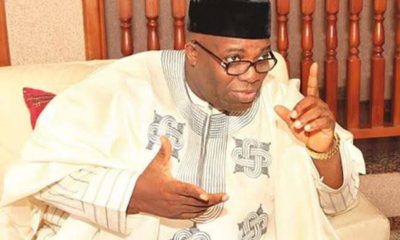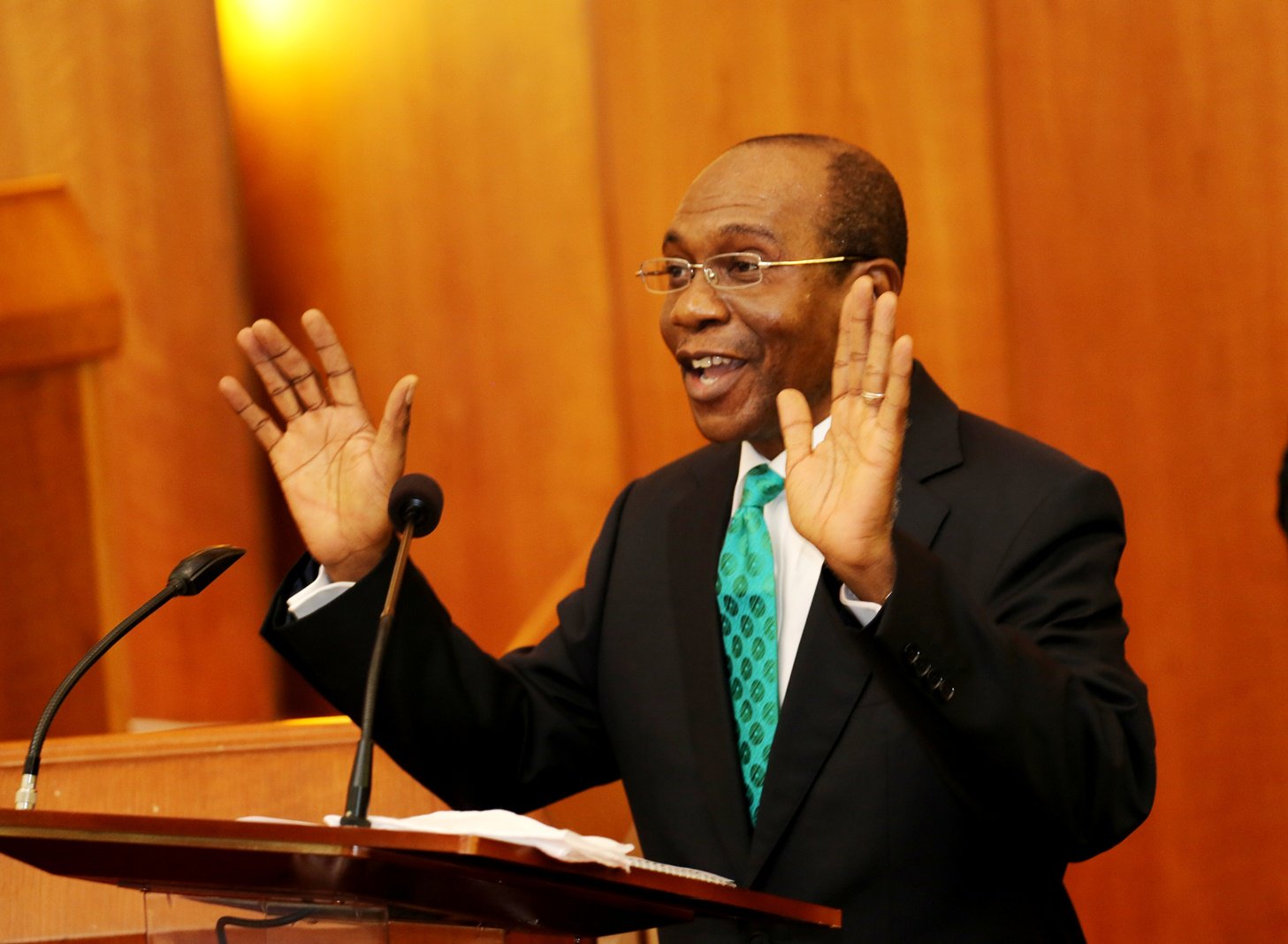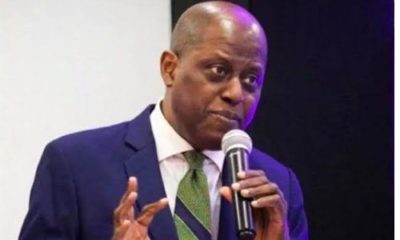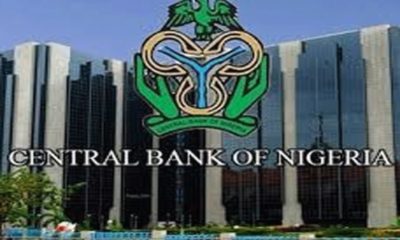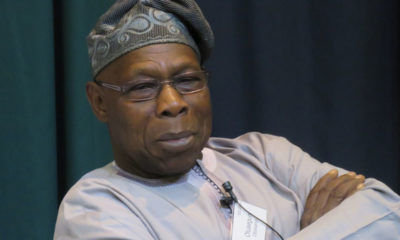Finance
Nigeria recovered over $2 bn and £100M Abacha loot-OBJ

By Yemie ADEOYE
LAGOS-A whooping 2 billion united states dollars, and another 100 million British pounds were recovered from Nigeria’s former dictator the late Gen Sani Abacha and his cronies during the tenure of former President Olusegun Obasanjo.
The former president who claimed to have left the above amount or N287 billion in the nations treasury further stated that the money was made up of $2bn, £100m and N10bn in cash and property, being the loot recovered from the late dictator, Gen. Sani Abacha.
 Obasanjo left office as President in 2007 after serving two terms of eight years and handed over to the now late former President Umaru Yar’Adua.
Obasanjo left office as President in 2007 after serving two terms of eight years and handed over to the now late former President Umaru Yar’Adua.
The N287bn figure was arrived at using an average exchange rate of N125.88 to a dollar in 2007 and an average exchange rate of N247.99 to a pound in the same year. The former President said the funds were paid into the treasury through the Central Bank of Nigeria.
Obasanjo’s revelation was contained in the Vol. II of his memoir, My Watch. His take on the Abacha loot is slotted under the sub-heading “Recovery of looted funds” on pages 494 and 495.
He said, “In total, by the time I left government in May 2007, over $2bn and £100m had been recovered from the Abacha family abroad, and well over N10bn in cash and properties locally. All were paid to the public treasury through the Central Bank.
“Enrico (Monfrini, a Swiss lawyer) told me by the time I left government that if he continued to get support for his work, there was still about $1bn he believed he could still recover from the Abacha family and cronies.”
The former President said that there was a time he got a report that £3m cash was seized from an agent of the late military dictator by customs officials at an airport in UK and that the British authorities asked the Nigerian government to prove ownership of the money.
He said the British government however refused to release the money to Nigeria despite showing details that it was taken from the CBN.
“I went to London to have a meeting on another important issue with (former British Prime Minister) Tony Blair and I took the opportunity to raise the issue of the £3m, using the Yoruba anecdote of the thief who stole palm oil from the ceiling cupboard by getting somebody to help him so as not to spill the red palm oil on himself or the floor. The man who assisted became an accomplice. Tony got the message and the £3m was released to Nigeria the following day,” Obasanjo stated.
A former finance minister in the Obasanjo administration, Dr. Ngozi Okonjo-Iweala, told The PUNCH last year through her Special Adviser on Communication, Mr. Paul Nwabuikwu, that contrary to reports that the sum of $2bn was recovered from the Abacha’s loot, only $500m was recovered under her as Obasanjo’s finance minister.
The minister made the clarification amid differing figures on the actual amount recovered.
For example, the pioneer Chairman of the Economic and Financial Crimes Commission, Mallam Nuhu Ribadu, had in November 2006, in London, said Abacha looted over $6bn from Nigeria and that $2bn of the loot had been recovered.
He mentioned same figure in the same month during the 12th International Anti-Corruption Conference in Guatemela and later in Dakar, Senegal, at the 2nd Annual High Level Dialogue on Governance and Democracy in Africa.
PUNCH-
Business
Nigeria pays US$4.9 billion on petrol subsidy in 2024- NNPCL
It was however noted by Biztellers.com.ng, that although subsidy is back in effect, the main reason for that is the increasingly weak state of the Naira and the country’s extreme dependence on products importation. Also unlike the previous subsidy era, where several oil marketers were getting free subsidy refunds for unverified product importation, this subsidy era is witnessing only one importer, the NNPCL, which in effect is the sole receiver of government subsidies.
Yemie ADEOYE
INSPITE of the official position of the Nigerian government that the controversial petrol subsidy is gone for good as announced by the President on assumption of office, the state owned Nigerian National Petroleum Corporation Limited, NNPCL has disclosed that petrol subsidy is still fully operational in Nigeria, although, under a different identity.
Umar Ajiya, Chief Financial Officer at the NNPCL, disclosed that it cost the company a staggering N7.8 trillion (US$4.9) to cover this price gap in the first seven months of 2024.
Rather than simply referring to these claims as subsidies, he stated that the company is merely managing the price difference in petrol imports on behalf of the federation, stressing that this should not be misconstrued as a return to subsidy payments.
![]() This revelation has reignited discussions on whether the NNPC is indirectly offering subsidies, a concept typically defined as selling a product below its cost price.
This revelation has reignited discussions on whether the NNPC is indirectly offering subsidies, a concept typically defined as selling a product below its cost price.
Documents reviewed by Biztellers.com.ng showed that the term “subsidy” was used extensively in official correspondence between the NNPCL and the presidency, particularly in reference to the “shortfall.”
Recall that President Bola Tinubu reportedly approved NNPC’s request to utilize the 2023 final dividends due to the federation to offset these costs.
However, during a media briefing on Monday about the company’s 2023 audited financial statements, Ajiya refuted claims that the NNPC is involved in any subsidy scheme.
Ajiya further disclosed that the Nigerian government owes the NNPC N7.8 trillion ($4.9 billion) in subsidy-related debts for the period from January to July 2024.
In furtherance of his clarification to the News Agency of Nigeria (NAN), Ajiya insisted that no subsidy payments have been made to any marketer in the last nine years, citing the NNPC’s role as the sole importer of petrol under supply contracts.
He said, “In the last eight to nine years, NNPC Ltd. has not paid anyone a dime as a subsidy; no kobo has been disbursed by NNPC Ltd. in the name of subsidy. No marketer has received any payment from us for subsidy.”
“What has been happening is that we have been importing PMS, which has been landing at a specific cost price, and the government tells us to sell it at half price. So the difference between the landing price and that half price is a shortfall.
“And the deal is between the Federation and NNPC Ltd., to reconcile, sometimes they give us money, so there is no money exchanging hands with any marketer in the name of subsidy.”
Ajiya remained silent on how much of the $4.9 billion could have been remitted to the federation account if the NNPC had not been covering the “shortfall.”
It was however noted by Biztellers.com.ng, that although subsidy is back in effect, the main reason for that is the increasingly weak state of the Naira and the country’s extreme dependence on products importation. Also unlike the previous subsidy era, where several oil marketers were getting free subsidy refunds for unverified product importation, this subsidy era is witnessing only one importer, the NNPCL, which in effect is the sole receiver of government subsidies.
Banking
CBN Denies Currency Devaluation

The Central Bank of Nigeria (CBN) has refuted claims of devaluing the.
Earlier reports suggested that the CBN had devalued the Naira, lowering its exchange rate from N631 to the dollar, compared to the previous day’s rate of N461.60 at the Importers and Exporters (I&E) window.
However, the Central Bank of Nigeria (CBN) released a statement on Thursday through its Acting Head of Corporate Communications, Dr. Isa Abdulmumin, categorizing the report as false information.
In the statement titled ‘CBN Has Not Devalued The Naira’, he said the attention of the apex bank was drawn to the news report by an Abuja based newspaper edition of June 1, 2023, titled “CB Devalues Naira To 630/51”.
However, the CBN stated categorically that the news report was replete with outright FALSEHOODS and destabilizing innuendos, ‘reflecting potentially willful ignorance of the said medium as to the workings of the Nigerian Foreign Exchange Market.’
“For the avoidance of doubt, the exchange rate at the Investors’ & Exporters (I&E) window traded this morning (June 1, 2023) at N465/USS1 and has been stable around this rate for a while.
“The public is hereby advised to ignore the news report by Daily Trust in its entirety, as it is speculative and calculated at causing panic in the market,” the CBN spokesman added.
He, therefore, advised media practitioners to verify their facts from the Central Bank of Nigeria before publishing in order not to misinform the public.
Banking
BREAKING: CBN Increases Interest Rate By 0.5%

The interest rate in Nigeria has been raised to 18.5 percent, up by 0.5 percent, from 18 percent where it was pegged in March 2023.
The Central Banks of Nigeria’s (CBN) Monetary Policy Committee (MPC) resolved to this effect at its third meeting of 2023 in Abuja, on Wednesday.
Governor, CBN, Godwin Emefiele, made the disclosure in the communiqué of the MPC’s meeting, thereafter.
While engaging the media at the end of the two-day meeting, Emefiele, said the committee voted to keep the asymmetric corridor at +100 and -700 basis points around the MPR.
In the view of the MPC, rising inflation rate is traceable to the high energy cost and challenges around the supply chain, among others, which lie outside the corridors of the CBN.
Emefiele said, “The current trend in price development would continue to be monitored by the bank with greater collaboration with fiscal authority to address the drivers of inflation.”
Biztellers reports that the CBN had effected six consecutive interest rate increases, which has seen the rate move from 11.5 percent in March 2022 to 18.5 percent in May 2023.

